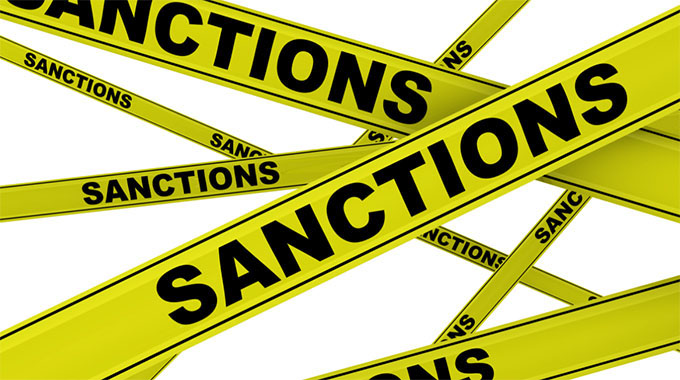HSBC confirms UK’s Zim sanctions policy

Zimbabwe has been under United States and European Union illegal sanctions for nearly two decades now. But there has always been debate and disagreement over who exactly is sanctioned, and therefore affected by the penalties.
Those who imposed the sanctions have always argued that there were only targeted at certain individuals and government owned companies and no one else.
But the Zimbabwean Government has over the years argued that the embargo has had a devastating impact on the whole country, with estimated losses of as high as over $40 billion.
The US recently extended the sanctions by another year, dashing hopes for a reprieve by the country’s new administration.
But a weekend statement by one of Britain’s biggest banks, HSBC, settles the argument of who is impacted by the US and EU sanctions.
The bank, which is also among the 10 biggest financial institutions in the world, issued a “sanctions policy statement” in which it spelt out how it implemented US and EU sanctions directives, and on whom.
HSBC reiterated its commitment, in its words, to “sanctions laws and regulations of the European Union, Hong Kong, the United Kingdom, the United Nations, and the United States, as well as applicable sanctions laws and regulations in the jurisdictions in which HSBC operates.”
The bank does not operate in Zimbabwe.
And among those policies which it said its entire group subsidiaries must comply with is restriction on “certain business activity involving, directly or indirectly, countries or persons subject to more selective or targeted sanctions programmes.”
“As of January 2018, the selective country programmes prohibit transactions and services relating to the provision of funding to the government of Belarus or Government of Zimbabwe…” the bank said. Other countries on the list include Cuba, Iran, North Korea, Syria and the Crimea region.
Yet those who imposed the sanctions insist the government of Zimbabwe and the generality of its citizens are not under sanctions.
In addition to HSBC’s weekend specification, there are reports Zimbabweans living in the diaspora are struggling to open bank accounts with certain banks “because Zimbabwe is under sanctions” or have failed to send remittances through formal channels because of the same reason.
On the other hand, local companies, as confirmed by the Reserve Bank of Zimbabwe, have over the years failed to access cheap loans from international financial institutions that fear they might be punished by the US government for dealing with Zimbabwean firms.
The US, through its Office of Foreign Assets Control, has over the years slapped companies with millions worth of fines for conducting business with or on behalf of sanctioned countries, firms or individuals.
Even a well known, anti-Zimbabwean Government group known as @PacheduZW expressed it’s shock on HSBC’s revelation, stating: “When the largest bank in Europe, and the 7th worldwide, is prohibited from providing funds to Zimbabwe, it means sanctions are not targeted on specific individuals but all Zimbabweans.”
Yet the US, in its bid to deflect blame for the economic difficulties in the country, continues to feign innocence, and instead recently blamed the Government in a tweet.
“#Truth: Since 1980 our (US government) commitment to the Zimbabwean people is unchanged: Over $3 billion to improve health, food security, economic resilience and democratic governance. Delivery on promised political and economic reforms will allow us to do even more. #FACTS,” its embassy in Harare tweeted.
“#Truth: Many years of harmful policies, not US sanctions, have led to Zimbabwe’s current economic challenges. We recognise Zimbabwe is making difficult economic decisions with limited resources in order to improve Zimbabwe’s trajectory. #WeStandWithZim #Since1980.”
But does aid, undo the harm that the sanctions have done and continue to do, others have asked.
Zimbabwe’s Minister of Foreign Affairs and International Trade, Sibusiso Moyo has described the embargo as regressive.
“Sanctions in any form are coercive, harsh and detrimental to any intended objective and should not have a place in contemporary diplomatic relations or discourse. They affect the poor and worsen the economic conditions they are intended to correct . . . they should be removed,” he said recently after the US extended its sanctions on Harare.
“The Government of Zimbabwe is fully determined to restore the country to its former glory in spite of hurdles that these sanctions put in the path of those efforts. Zimbabwe has set itself a formidable trajectory that will take it to a new destiny of economic prosperity.”
Besides blocking funding, the continued existence of sanctions, experts say, paint a bad picture on the country, thereby blocking potential investment and limiting the number of firms and institutions that might want to be involved in Zimbabwe’s economy through different forms of partnerships. – New Ziana.










Comments